Responsables :
Astrid PINZANO
Laurent GROSSIN
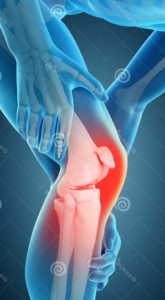
The “Regenerative Medicine, Pharmacology and Characterization of OsteoArticular Tissues (ReMPaCOAT)” team’s project is based on a cross-disciplinary strategy for a multiaxial approach to the treatment of focal or diffuse osteoarticular lesions, ranging from tissue engineering to the development of new therapeutics, their pharmacological study and the development of innovative tools for improved tissue characterization. This project reflects the importance of the link between basic research and clinical research. It will be attached to section 28 of the CNRS and will comprise four intrinsically linked, complementary and cross-disciplinary areas.
Expertise of team members. Our team has been specializing in cartilage regenerative medicine and characterization tools for over 20 years. Our previous results have confirmed that MSCs are excellent candidates for promoting chondrogenesis within biomaterials. Since 2016, we have initiated work on tissue engineering using 3D printing and acquired expertise in this field. The arrival of a research fellow studying in the physiopathology of osteoarthritis will bring additional expertise to our project. As well as developing therapies using peptides (Axis 2), he will be contributing all his knowledge to Axes 1 and 3. The expertise of the team’s pharmacologists and the recruitment of an MCU-PH will enable the emergence of new therapies.


The aim of Axis 1 is to produce tissue-engineered cartilage substitutes for the treatment of traumatic or pathological chondral and osteochondral lesions, using innovative biomaterials and cell sources or revolutionary processes such as 3D printing.

The aim of theme 2 is to design therapeutic peptides based on natural proteins that regulate the Hippo and/or Wnt signalling pathways. Modulating these pathways to combat osteoarthritis would appear to be an attractive option.

The aim of Axis 3 will be to evaluate innovative pharmacological treatments for osteoarticular pathologies and to optimize them by improving their pharmacokinetic profile through national and international collaborations and in conjunction with the Pharmacology and Toxicology Department of the Nancy CHRU.

The aim of Axis 3 will be to evaluate innovative pharmacological treatments for osteoarticular pathologies and to optimize them by improving their pharmacokinetic profile through national and international collaborations and in conjunction with the Pharmacology and Toxicology Department of the Nancy CHRU.
The objectives of this 4th axis will focus on innovative tools to (1) better characterize the quality of tissue engineering products, (2) develop in vitro models reproducing the complex organization of the joint site (organ-on-a-chip or complex organoids), (3) study the fate of our tissue engineering products in vivo (biodegradation, bio-functionality, bio-integration) and (4) better characterize osteochondral tissues using imaging.
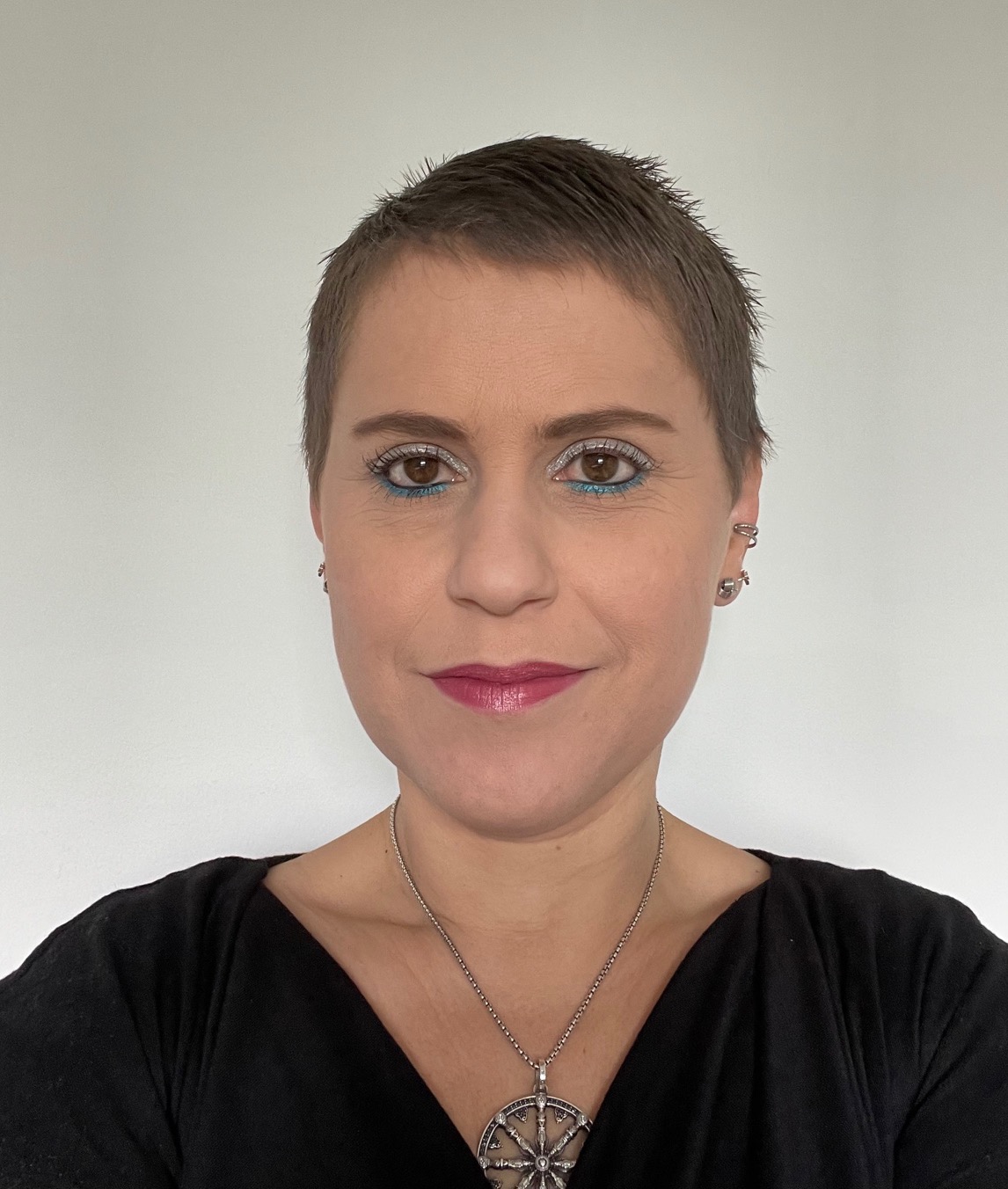 | Directrice de Recherche CNRS (DR2, Section 28, HDR)Projets: Médecine régénératrice & pathologies ostéoarticulaires Biographie Doctorat d’Université en Sciences du médicament, Université Henri-Poincaré de Nancy I – Allocataire MENRT “Influence des composés matriciels sur le signal IRM du cartilage” (2001). DU de Chirurgie Expérimentale, Université de Lorraine (2014). Diplôme Universitaire d’Expérimentation Animale Niveau I (2004). Post-doctorat (2002), Université de Bern, Suisse. Institut für Biomechanik (E. HUNZIKER). Post-doctorat (2003), Université Henri-Poincaré de Nancy, France. Laboratoire de Physiopathologie et Pharmacologie Articulaires (P. NETTER). Habilitation à Diriger des Recherches (HDR), Université de Lorraine, Nancy, France (2015). Chargée de Recherche CNRS (2003-2020) / Directrice de Recherche CNRS (2020-maintenant). Co-responsable de l’équipe BioReMaTCh. Prix et distinctions pour ses travaux de recherche en ingénierie du cartilage : Médaille de bronze du CNRS (2015), Prix Suzanne ZIVI (2014), Bourse du jeune chercheur CASDEN (2013), Prix NEGMA-LERADS (2005). Responsable du secteur commun d’histologie du laboratoire. Bureau : 2G30 BiopôleContacts |
Chargé de recherche (CR CN Section 28), CNRSProjets: Médecine régénératrice & pathologies ostéoarticulaires Biographie Doctorat de l’Université de Limoges, mention biochimie et biologie moléculaire « Application de la thérapie génique dans le traitement de différents cancers. Utilisation d’un gène suicide. Etudes de différentes techniques de transfert de gènes d’intérêt à des lignées cellulaires cancéreuses » (1999) Post-doctorat (2000-2004), Université Henri-Poincaré de Nancy, France. Laboratoire de Physiopathologie et Pharmacologie Articulaires (P. NETTER). Diplôme Universitaire d’Expérimentation Animale Niveau I (2003). Chargée de Recherche CNRS (2004-2024) Assistant de Prévention (2008-maintenant) Correspondant Sécurité du Système d’Information Bureau: 2G31 BiopôleContacts |
 | Doctorant, ED BioSE – Université de LorraineProjets: Médecine régénératrice & pathologies ostéoarticulaires Biographie: Doctorant financé par l’école doctorale BioSE (Université de Lorraine) depuis le 01/10/2020: « Potentialités chondrogéniques des cellules souches mésenchymateuses ostéoarticulaires versus chondrocytes natifs en ingénierie du cartilage ». Sous la direction du Pr. Pierre GILLET et du Dr. Astrid PINZANO Master Sciences du Vivant Parcours Recherche en Biologie Santé 2020 (Université de Lorraine) Licence Sciences de la vie 2018 (Université de Lorraine) DUT Génie Biologique Option Analyses Biologiques et Biochimiques 2016 (Université de Lorraine) Bureau: 2G40 Biopôle Contacts |
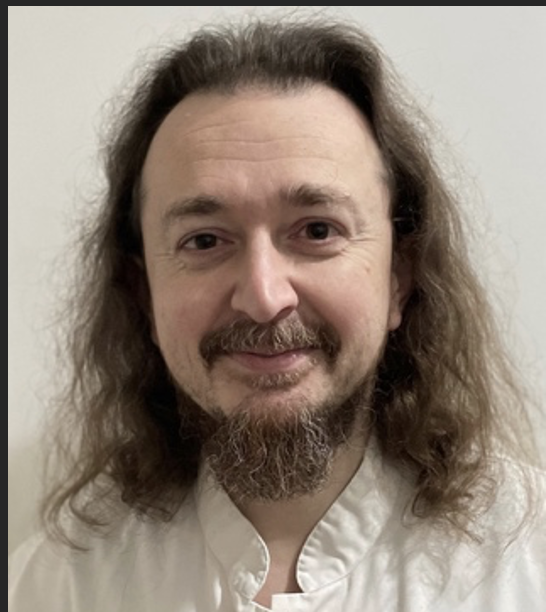 |
Chargé de recherche (CR CN Section 28), CNRSProjets: Médecine régénératrice & pathologies ostéoarticulaires Biographie Post-doctorat Chargée de Recherche CNRS (2014-2024) ABureau: 2G31 BiopôleContacts |
 | Adjoint Technique, Université de LorraineProjets: Médecine régénératrice & pathologies ostéoarticulaires Bureau: 2G61 BiopôleContacts |
 |
Ingénieur de recherche (IR HC), Université de LorraineProjets BiographieBureau: 0G45 BiopôleContacts |
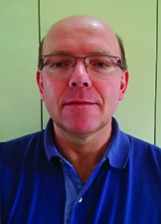 | Professeur des universités – Praticien hospitalier (PU-PH1)Projets: Médecine régénératrice & pathologies ostéoarticulaires Biographie Professeur de Chirurgie Orthopédique et Traumatologique Expert près la Cour d’Appel de Nancy Expert près la Cour Administrative d’Appel de Nancy Expert national en Accidents Médicaux (CNAMed) Bureau: 2G31 BiopôleContacts |
 | Maitre de conférence – Praticien Hospitalier (MCU-PH1)Projet : Médecine régénératrice & pathologies ostéoarticulaires Biographie Docteur en Pharmacie, Faculté de Pharmacie de Nancy (2003) Diplôme d’Etudes Spécialisées de Pharmacie Spécialisée (2003) Doctorat de l’Université Henri Poincaré de Nancy (2006) Maître de Conférences des Universités en Pharmacologie fondamentale, Faculté de Médecine de Nancy (2006) Praticien Hospitalier en Pharmacologie clinique et Toxicologie, CHRU de Nancy (2006) Expert Judiciaire inscrit près la Cour d’Appel de Nancy (2009) Bureau: 0G42 BiopôleContacts |
 | Professeur des universités – Praticien hospitalier(PU-PH1)Projets: Médecine régénératrice & pathologies ostéoarticulaires Biographie Pharmacologie Clinique, Pharmacologie Fondamentale (Section CNU 48-03) Directeur du Centre Régional de Pharmacovigilance de Lorraine Directeur du Centre d’Évaluation et d’Information sur la Pharmacodépendance- Addictovigilance Responsable de l’Animalerie d’IMoPA Expert Pharmacologue/Rhumatologue Agence du médicament/ANSM (1997 – actuellement) Membre titulaire du Comité d’Ethique Lorrain pour l’expérimentation Animale Bureau: 0G42 BiopôleContacts |
 | Ingénieur de recherche (IR2), Université de LorraineProjets: Médecine régénératrice & pathologies ostéoarticulaires Biographie Doctorat d’Université en Sciences du Médicament, Université H. Poincaré, Nancy I, “Potentialités chondroprotectrices d’Hsp70 vis à vis des phénomènes apoptotiques : Etudes in vitro et in vivo chez le rat” (2003) Post-doctorat au sein de l’unité « Vectorologie et Transferts de gènes », CNRS-Institut Gustave Roussy (2003) Diplôme Universitaire d’Expérimentation Animale Niveau I. Diplôme Universitaire de Chirurgie expérimentale. Prix de la meilleure communication fondamentale primée par la SFA, Luxembourg, (2014) Prix de recherche de Thérapie Cellulaire Benjamin RAMUS (2007) Membre du comité d’Ethique Lorrain en Expérimentation Animale (2012 à aujourd’hui) Membre élu du Pôle Biologie Santé (Pôle UL Biologie Médecine Santé, 2012 à aujourd’hui) Co-responsable du secteur d’expérimentation animale de l’UMR (responsable des médicaments et gestion de la structure bien-être animal) Responsable du secteur commun de biologie cellulaire et d’histologie du laboratoire Bureau: 2G32 BiopôleContacts |
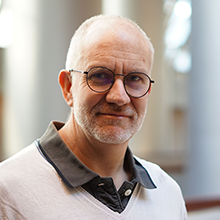 | Professeur des universités – Praticien hospitalier(PU-PH1)Projets: Médecine régénératrice & pathologies ostéoarticulaires Biographie Bureau: 2G32 BiopôleContacts |
 | Professeur des universités – Praticien hospitalier (PU-PHCE)Projets: Médecine régénératrice & pathologies ostéoarticulaires Biographie Professeur de Chirurgie Orthopédique et Traumatologique (CE 2ème échelon) Directeur du pôle scientifique Biologie Médecine Santé de l’Université de Lorraine Responsable interrégional du DESC et régional du DES Ancien président de la Société Française de Chirurgie Orthopédique et Traumatologique Bureau: BiopôleContacts |
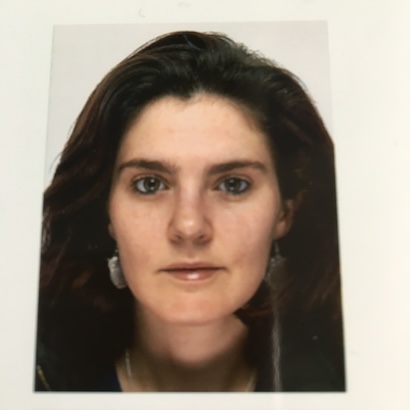 | Maitre de conférence des universités – Praticien hospitalier(MCU-PH)Projets: Médecine régénératrice & pathologies ostéoarticulaires Biographie – Diplôme d’Etude Spécialisée de Médecine du Travail, Faculté de Médecine de Lille (2015) – Diplôme d’Etude Spécialisée Complémentaire de Médecine Légale et Expertises Médicales, Faculté de Médecine de Lille (2016) – Maître de Conférence des Universités en Médecine Légale et Droit de la Santé, Faculté de Médecine de Nancy (2023) – Praticien Hospitalier en Médecine Légale, CHRU de Nancy (2019) – Expert Judiciaire Près la Cour d’Appel de Nancy (2021) Bureau: 2G32 BiopôleContacts |
 | Maitre de conférence – Praticien Hospitalier (MCU-PH2)Projets: Médecine régénératrice & pathologies ostéoarticulaires Biographie Praticien Universitaire en Pharmacologie Fondamentale et Pharmacologie Clinique, Faculté de Médecine de Nancy (2018) (Section CNU 48-03) Praticien Hospitalier en Pharmacologie clinique et Toxicologie, CHRU de Nancy (2018) Docteur en Pharmacie, Faculté de Nancy (2014) Diplôme d’Etudes Spécialisées en Biologie Médicale, Université de Lorraine (2014) Bureau: 2G61 BiopôleContacts |
 | Maitre de conférence des université – Praticien Hospitalier (MCU-PH1)Projets: Médecine régénératrice & pathologies ostéoarticulaires Biographie Docteur en Pharmacie, Faculté de Pharmacie de Nancy (2006) Docteur en Pharmacologie de l’Université Henri Poincaré de Nancy Ancien Moniteur d’Initiation à l’Enseignement Supérieur, CIES de Lorraine (2009) Maître de Conférences des Universités en Pharmacologie fondamentale, Faculté de Médecine de Nancy (2012) Praticien Hospitalier en Pharmacologie clinique et Toxicologie, CHRU de Nancy (2012) Expert Judiciaire inscrit près la Cour d’Appel de Nancy (2016) Bureau: 0G42 BiopôleContacts |
 | Doctorante, ED BioSE – Université de LorraineProjets: Médecine régénératrice & pathologies ostéoarticulaires Biographie: Doctorante financée par l’école doctorale BioSE (Université de Lorraine) depuis le 01/10/2021: «Caractérisation de la zone de transition cartilage / os et développement de bio-encres adaptées à la reproduction de cette zone d’ancrage sous-chondrale dans le traitement des lésions ostéochondrales par ingénierie tissulaire », sous la direction du Pr. Laurent Galois et du Dr. Laurent GROSSIN
Bureau: 2G40 Biopôle Contacts |
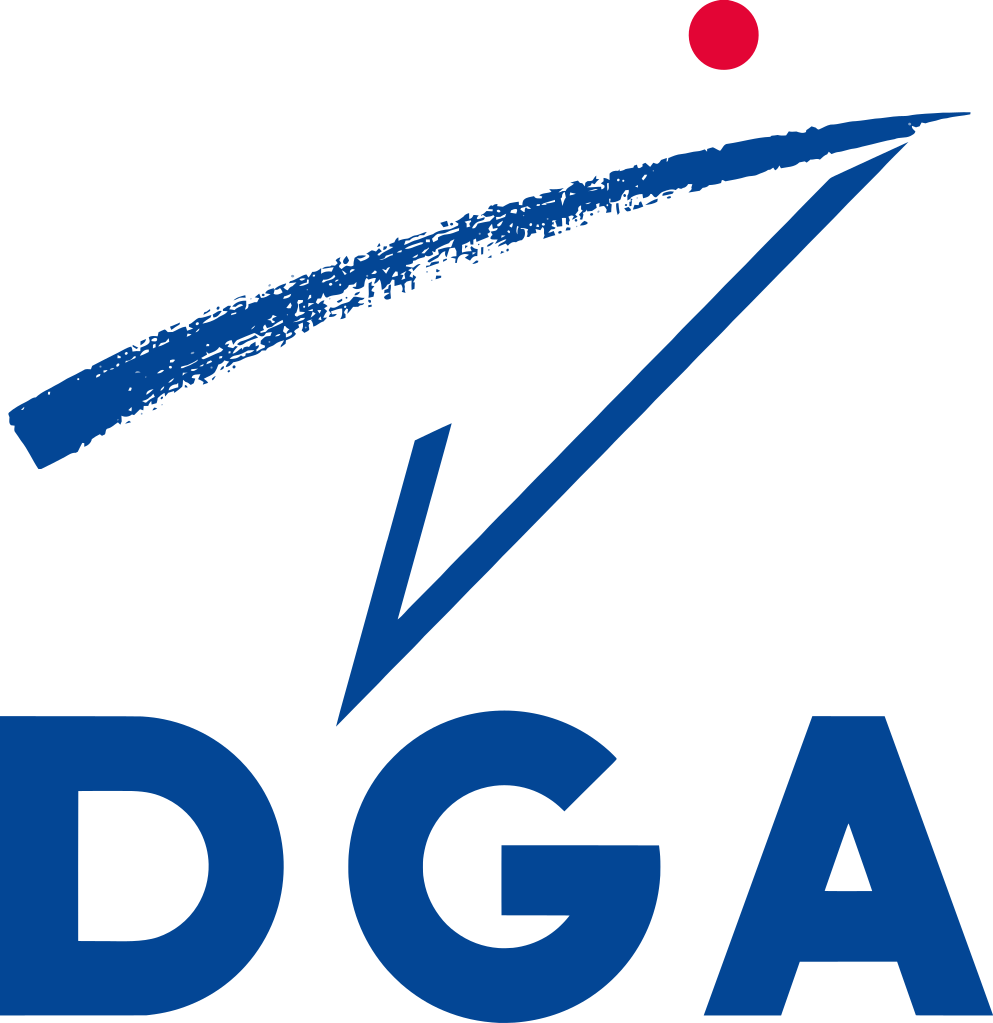





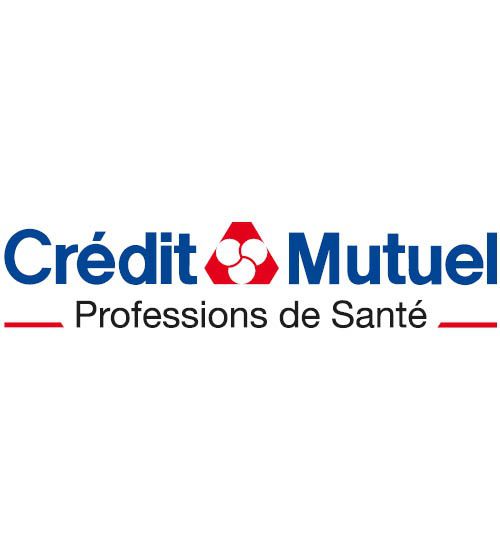
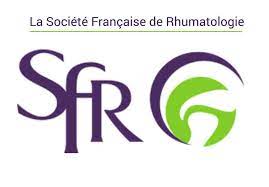



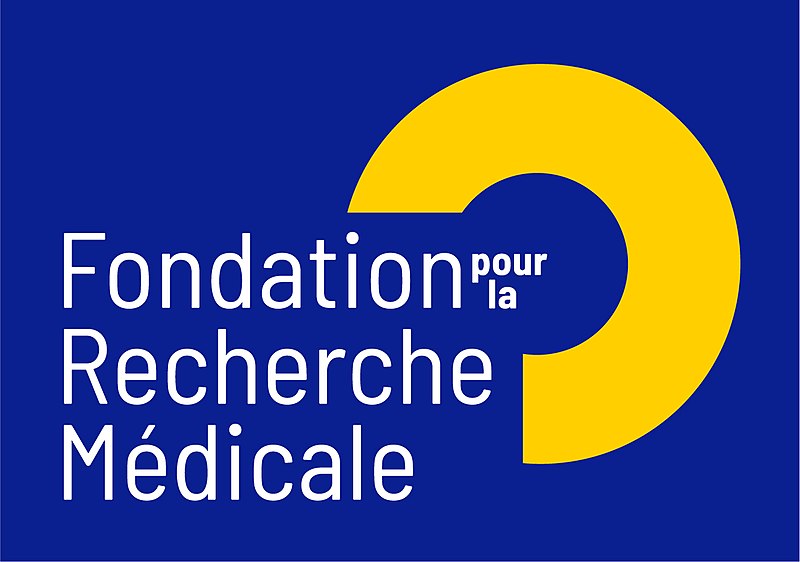
© 2024 Ingénierie Moléculaire Cellulaire & Physiopathologie. Built using WordPress and the Mesmerize theme